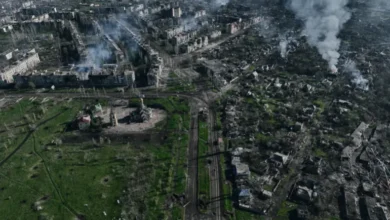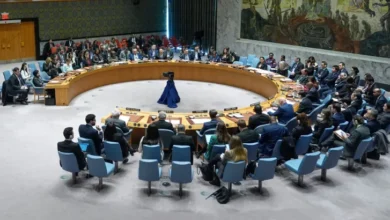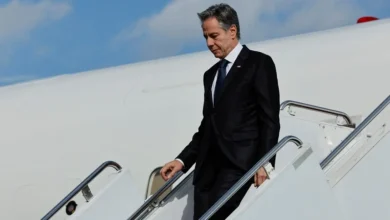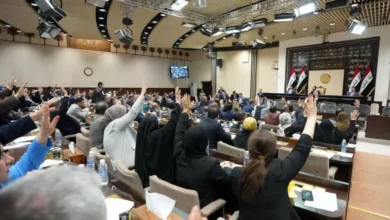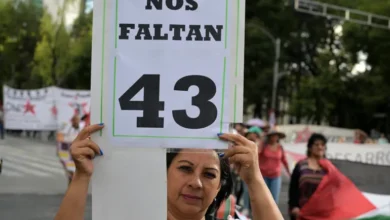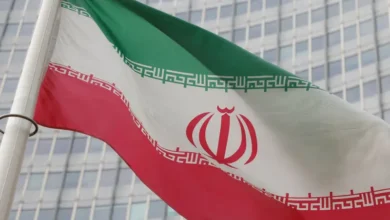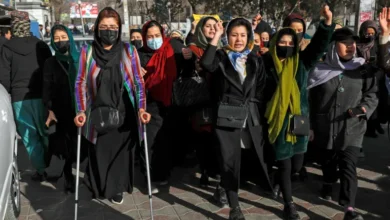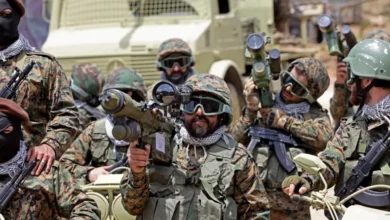Rescuers denounce aid ‘failure’ in Syria’s devastated northwest
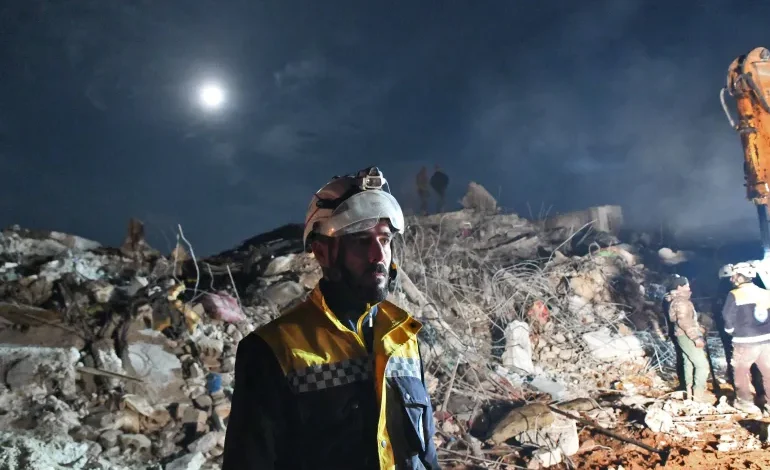
Syrians living in the rebel-held northwest region have decried the lack of humanitarian aid for victims of two powerful earthquakes that struck Turkey and Syria, describing catastrophic scenes in an area already ravaged by 12 years of civil war.
On Sunday, United Nations aid chief Martin Griffiths acknowledged the shortcomings, saying the Syrian population in the territory feel “abandoned” because the assistance they had hoped for had not yet arrived.
“We have so far failed the people in northwest Syria. They rightly feel abandoned. Looking for international help that hasn’t arrived,” he said in a tweet.
“My duty and our obligation is to correct this failure as fast as we can. That’s my focus now,” he added during a visit to the border area, five days after devastating magnitude 7.8 and 7.6 earthquakes – and numerous aftershocks – rocked Turkey and Syria, killing more than 33,000 people including at least 4,500 in Syria alone.
Before the earthquakes, humanitarian aid had entered the northwest mainly through the Bab al-Hawa land crossing with Turkey, the only internationally agreed-upon access point.
But no aid convoys arrived for the first three days, with the UN saying roads on the Turkish side were unpassable. The first trucks finally started coming through via Turkey on Thursday, but needs still far outstrip supplies.However, according to Raed al-Saleh, head of the Syria Civil Defence or White Helmets, the two convoys that went through on Thursday and Friday – a total of 20 trucks – carried “scheduled aid”, which is periodically delivered to families in refugee camps and which includes sugar, flour and cooking oil.
“It wasn’t aid for the families and people in the towns and cities which were in the disaster zone of the quake,” he said on Saturday.
On Sunday, al-Saleh responded to Griffiths’s tweeted apology, saying: “After meeting today with @UNReliefChief at Turkish-Syrian border, we appreciate the apology for the shortcomings and mistakes.”
He went on to urge the UN to work to open more land crossings into northwestern Syria other than Bab al-Hawa, which is the only one approved by a UN Security Council resolution.
Aid to government-held areas
The Syrian government in Damascus has also been receiving aid from international donors, and there is still uncertainty about whether that will be equitably distributed to all the stricken parts of the country, including the rebel-held northwest.
Officials from the UN entered the government-controlled city of Aleppo on Saturday, after issuing a warning saying up to 5.3 million people in the country may have been made homeless as a result of the quakes.
World Health Organization (WHO) Director-General Tedros Adhanom Ghebreyesus is also in Aleppo, arriving on a plane carrying about 35 tonnes of vital medical equipment, according to Syria’s state-run SANA news agency, which added that a second plane will arrive in two days.
On a visit to Kahramanmaras, the epicentre of the initial quake, Griffiths said he hoped aid delivered to the Syrian government would go to both government and opposition-held areas, but this was “not clear yet”.
